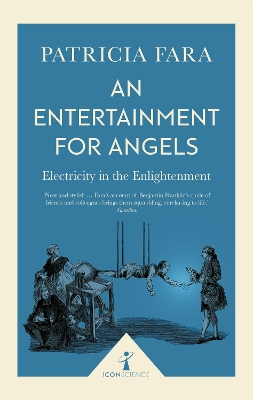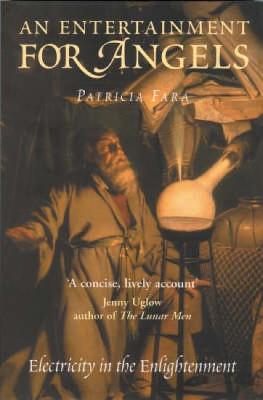Icon Science
3 total works
Electricity was the scientific fashion of the Enlightenment, 'an Entertainment for Angels, rather than for Men'. Lecturers attracted huge audiences to marvel at sparkling fountains, flaming drinks, pirouetting dancers and electrified boys. Enlightenment optimists predicted that this new-found power of nature would cure illnesses, improve crop production, even bring the dead back to life.
Benjamin Franklin, better known as one of America's founding fathers, played a key role in developing the new instruments and theories of electricity during the eighteenth century. Celebrated for drawing lightning down from the sky with a kite, Franklin was an Enlightenment expert on electricity, developing one of the most successful explanations of this mysterious phenomenon.
But Patricia Fara, Senior Tutor of Clare College Cambridge, reveals how the study of electricity became intertwined with Enlightenment politics. By demonstrating their control of the natural world, Enlightenment philosophers hoped to gain authority over society. And their stunning electrical performances provided dramatic evidence of their special powers.
Benjamin Franklin, better known as one of America's founding fathers, played a key role in developing the new instruments and theories of electricity during the eighteenth century. Celebrated for drawing lightning down from the sky with a kite, Franklin was an Enlightenment expert on electricity, developing one of the most successful explanations of this mysterious phenomenon.
But Patricia Fara, Senior Tutor of Clare College Cambridge, reveals how the study of electricity became intertwined with Enlightenment politics. By demonstrating their control of the natural world, Enlightenment philosophers hoped to gain authority over society. And their stunning electrical performances provided dramatic evidence of their special powers.
But Enlightenment botany was fraught with sexual symbolism. And in Sweden and Britain, both imperial powers, Banks and Carl Linneaus ruled over their own small scientific empires, promoting botanical exploration to justify exploiting territories, peoples and natural resources. Regarding native peoples with disdain, these two scientific emperors portrayed the Arctic North and the Pacific Ocean as uncorrupted Edens, free from the shackles of Western sexual mores.
Patricia Fara reveals how, barely concealed under Banks' and Linneaus' camouflage of noble Enlightenment, were the altogether more seedy drives to conquer, subdue and deflower - in the name of the British imperial State.


